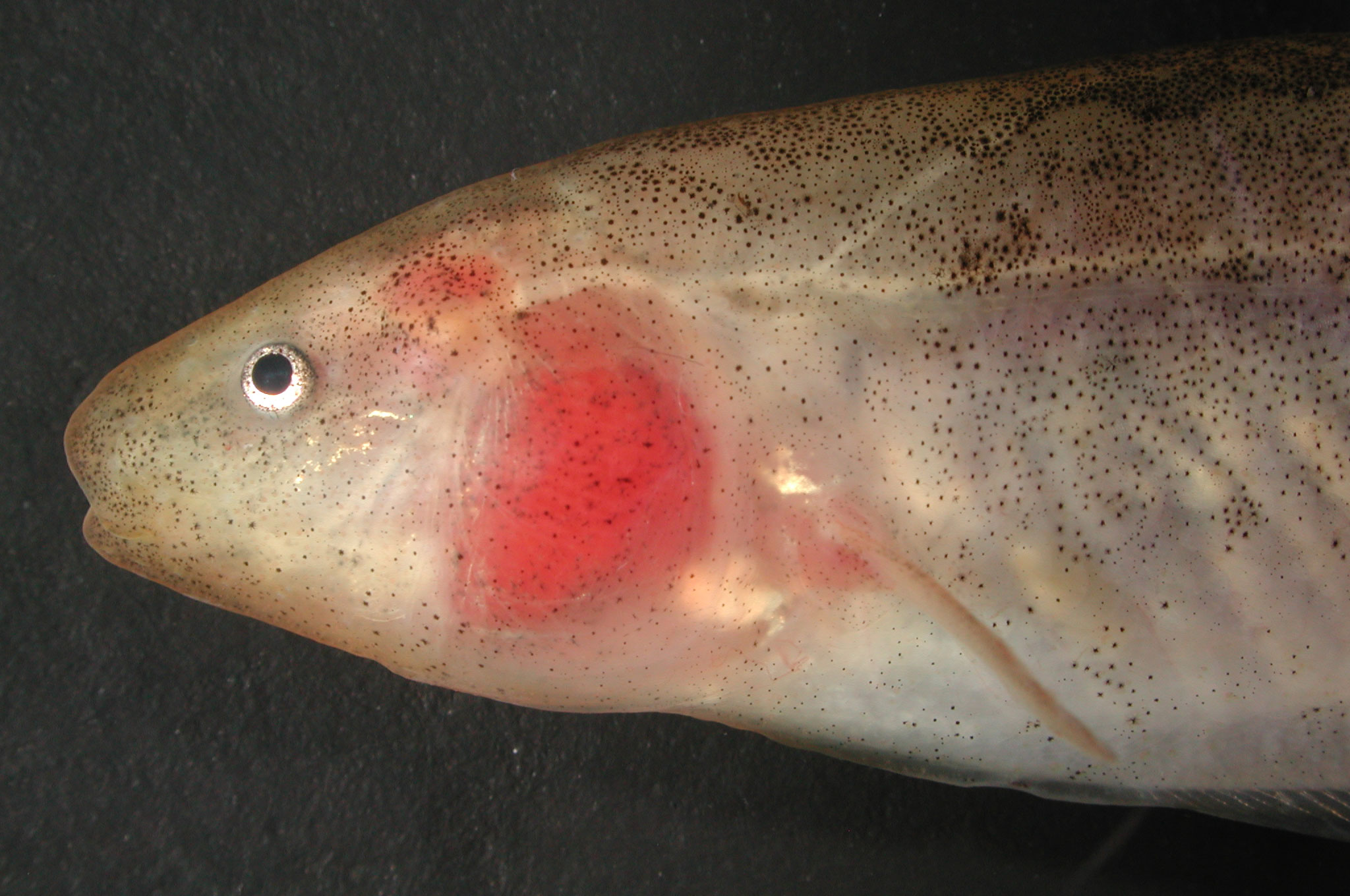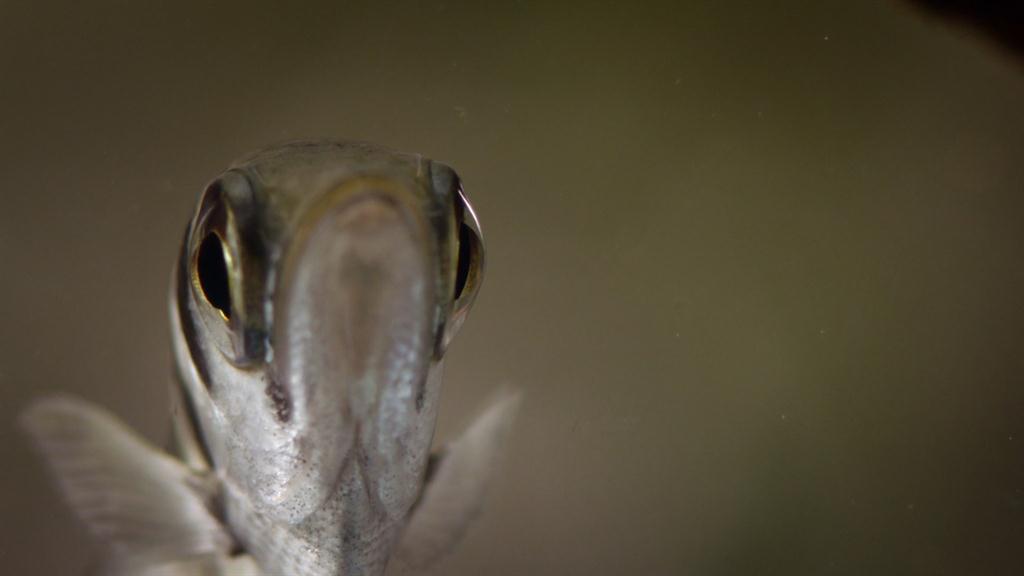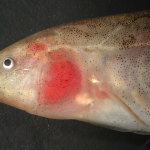The National Geographic Society
An electric fish inflates its size to neighboring fish to reduce competition and attract mates, experiments show.

PHOTOGRAPH BY WILL CRAMPTON, UNIVERSITY OF CENTRAL FLORIDA
When Philip Stoddard eyes the fish in his research tanks, he’s not admiring their graceful movements—he’s wondering which ones are liars.
Stoddard, a biologist and expert in electric fish at Florida International University in Miami, studies when fish are deceitful, and how other fish detect their fibs.
Many animals communicate through an impressive array of techniques, from growling to changing colors to spraying chemicals in the air. So it’s unsurprising, Stoddard says, that not all of that communication is honest.
One of the “fundamental remaining mysteries of animal communication” is how animals know to trust—or distrust—their fellow creatures, Stoddard says. (See “How Fish Make Themselves Invisible—Mystery Solved.”)
In fact, says Stoddard, animals often deceive with the same calculations that we do: to manipulate others.
“A young woman of any species can tell you that they don’t trust guys to be entirely truthful about the quality of their properties,” he said during a recent interview in Miami.
Big Fish
Usually, he says, it’s “the standard conversational topics that interest most animals: identity, sex, aggression, and real estate.”
To crack the code of this conversation, Stoddard is raising feathertail knife fish—a slim freshwater species from South America—in plastic tubs on the roof of the Biological Sciences building in Miami. He put them there after foxes found and devoured his research subjects at ground level. He’s added fox-proof gates, too: “Yes, foxes will go up stairwells.”
The 8-inch (20-centimeter) long nocturnal fish generate weak pulses of electricity to map their environment and communicate with each other.
These electric signals—which sound like a raspy motorbike engine when played through the speakers attached to Stoddard’s tanks—give other fish an idea of the size of the broadcasting fish. Bigger fish can send stronger signals.
Fish Tales
Studying “pinni” fish, as he calls them (to avoid the full Latin moniker of Brachyhypopomus pinnicaudatus) Stoddard has led to some unexpected discoveries.
In one experiment, he fed both male and female fish all the worms they could eat and put others on a severe diet.
Taped to the wall across his desk are printouts with streams of numbers reflecting the signals the fish emitted; Stoddard is finishing a paper on his study and prepares to present at two upcoming conferences. The numbers “drove me nuts,” he admits.
That’s because he expected the fattened fish to send out the strongest signals—to boast most loudly of their corpulence to prospective mates and warn off competitors. Hungry fish, he hypothesized, might be quieter to save energy while they seek out food.

In fact, he has concluded, they do the opposite: Fish that are poorly fed divert their dwindling energy resources into sending out the loudest signal they can. They are, in effect, trying to exaggerate their size.
“When food is scarce, that probably is an indicator that your life is not going to last much longer,” Stoddard says. (See “Monkeys Use False Alarms to Scam Food?“)
So he concludes “they have one last hurrah” to find a mate. “They knock themselves out, and signal as loud as they can.”
Trust Issues
But are prospective mates fooled?
This is the tricky part of Stoddard’s research. If every hungry fish is electrically bellowing, each is revealing its maximum abilities, so the deception no longer works.
“The signal actually becomes more reliable because everyone is doing it,” he says. “As a consequence of everybody lying, the truth emerges.”
But how do receiving fish know if they are getting loud signals from skinny fish or weak signals from well-fed fish?
In another ongoing experiment, Stoddard puts a female between two males in three separate compartments of a large fish tank, in the dark so they only hear signals.
He studies which male’s turf she chooses to enter based on its signals. Or he puts a male in the middle to figure out which competitor the fish believes it can bully based on its signal.
Stoddard says fish may show behavior like different types of humans: “You could say, ‘Well, I’m just going to trust everybody. I’m a trusting kind of fish.’ Or you might say, ‘I don’t believe anybody.’ Or, you might say, ‘I like to go day-by-day to check everything out. Things change.’”
Stoddard believes pinni fish can do that calculation: “They are smarter than people think.” (See “Fish as Good as College Students in Numbers Test.”)
Faking it ‘Til You Make It
Honesty in animal communication is one of curveballs in animal research, says Michael Markham, a biologist of the University of Oklahoma who used to work with Stoddard but is not directly involved in the new research.
“Whether it is electric fish or elk or humans, there are ways of signaling how valuable you are as a mate and how powerful you are as an adversary,” Markham says. (Also see “Scientists Breed Smarter Fish But Reveal Costs of Big Brains.”)
The research confirms that we humans are not alone in our dishonesty, he adds.
“At least for short periods of time,” Markham says, other animals “can fake those signals.”
Follow Doug Struck on Twitter.
